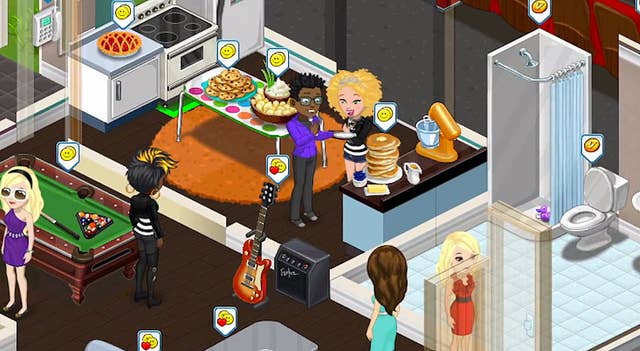EA vs Zynga to drag on for "several years" says Pachter
The lawsuit is unlikely to affect the fiscal outlook of either firm for now
On Friday, EA sent waves through the social gaming market, announcing a lawsuit against rival Zynga for alleged copyright infringement. EA believes that Zynga's The Ville is a blatant rip-off of its own The Sims Social, and that to most observes the two titles are indistinguishable. Wedbush Securities analyst Michael Pachter, who is also an attorney, notes that many of EA's claims "have a ring of truth, while other appear harmless" and ultimately he sees the case lasting for a few years at least.
"We are convinced that EA will press on with this lawsuit until it receives a jury verdict, and we think that sufficient controversy over the facts exists to preclude a grant of summary judgment. It is our opinion that the two companies will remain adversaries for the next several years over this case, and we do not expect the case to be resolved for several years," he observed.
"In the meantime, it is difficult to assess the likelihood that EA will receive significant damages, and equally likely to assess the likelihood that Zynga will be required to shut down its game. This case reminds us of the 'Barbie vs. Bratz' case, which has dragged on for seven years without resolution."
"Copyright infringement cases are complex, and it is exceedingly difficult for plaintiffs to prove that defendants misappropriated their ideas. Even if misappropriation is proved, juries may declare 'no harm, no foul'. This case is likely to drag on for quite some time, and it is difficult to assess the impact on either EA or Zynga. As we do not expect a resolution prior to the end of 2013, our estimates for both EA and Zynga will remain unchanged for the time being."
The line between emulation of a game concept and outright infringement on a copyright is somewhat blurry, and it's not going to be easy for EA to prove. Pachter made a comparison to Call of Duty and Medal of Honor.
"The concept of The Sims is life simulation, so eating, sleeping, home improvement, dating, breaking up, earning money, etc. all are ordinary activities engaged in by most people. We believe that emulation of a life simulation game, in and of itself, would not ordinarily give rise to a successful lawsuit," he added.
"For example, EA's own Medal of Honor franchise was emulated by Activision's Call of Duty franchise, and the initial developers of the latter franchise worked on the immediately past version of the former before going to work for Activision. EA did not seek to stop Activision from emulating its World War II military shooter game, as it apparently understood that games based upon real-life events that were in the public domain were difficult to copyright and protect. Activision's game was sufficiently different from EA's that a lawsuit was unlikely to prevail. The same reasoning leads us to conclude that the mere emulation of a life simulation game would be insufficient, in and of itself, to result in successful lawsuit."

